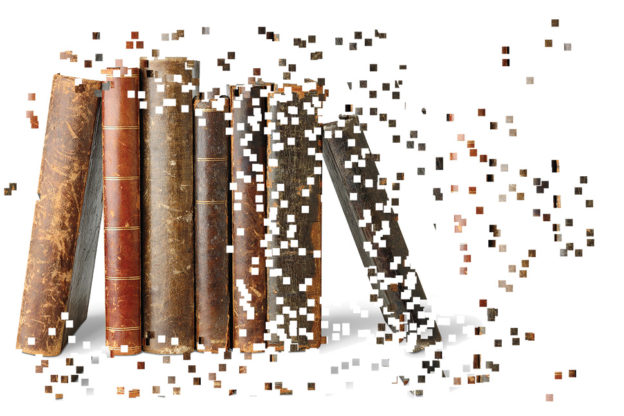Open-source content readily exists at our fingertips. The degree to which we have access to this content is arguable, though still reveling underneath the surface is a fighting battle of order in the face of information overload. We are flâneurs in the digital landscape traveling through, click by click, in search of content we seek, and happening on content we enjoyed finding along the journey.
Lists are gathered to succinctly make sense of content available. If these lists turn exhaustive, they run the risk of betraying their intended purpose, though lists also run the risk of being never enough. On the other side of organizing and making sense of content available, one has to wonder about the relationship between the nature of the content and the degree to which it is accessible. For instance, in naming a document (private, privilege, restricted-access, etc.), we deem the extent to which that content can be found. So it would seem that these words are obvious and exhaustive in their implication, but what do we then make of a word like “education,” and to which extent should content be made available?
And so it is with a search term like “digital humanities” which largely indicates, to a large extent, openness and accessibility itself. We need not worry about the exhaustiveness of the findings that exist when content is made open and available because the possibilities the questions posed of the information are endless and expansive. Solutions build upon one another contextualizing something more than the original.
Is the question what do we risk when knowledge is made open, public, and readily available, or what do we risk when information is not?
Complementing these questions, here are a few online resources open and available that address the breadth of digital humanities in scholarship, debate, history, and terminology.
1. #dariah Teach
Open-source teaching materials for digital arts and humanities on DH. Provided by #dariahTeach project, an online platform for teaching digital humanities, funded by an Erasmus+ Strategic Partnership grant. For more information about the project visit: http://dariah.eu/teach/
2. Yale Digital Humanities Lab
Follow the lab for a collection of the Yale Digital Humanities Lab’s recordings. For a full listing of past and upcoming events, visit dhlab.yale.edu.
3. Wired! Lab @ Duke University
The Wired! Lab for Digital Art History & Visual Culture explores visual and material culture through critical engagement with digital technologies. Our community of faculty, staff, and students uses digital methods in our teaching and research on the visual arts, architecture, cultural heritage, and built environments. We have a special interest in projects that engage the public online and in museums.
4. Digital Humanities Centres: “Experiences and Perspectives”
Digital Humanities research always takes place within a specific institutional context, which is constituted by both science system and its societal environment. DH centres, which are being launched all over the world, have therefore to face a number of challenges in order to function effectively and fulfill the potential of DH.
The event was organized under the auspices of the Alliance of Digital Humanities Organizations (ADHO), the Digital Research Infrastructure for the Arts and Humanities (DARIAH EU), the Ministry of Science and Higher Education, the Ministry of Digital Affairs and the Committee of Linguistics of the Polish Academy of Sciences.
5. Defining the Digital Humanities at Columbia University
Digital humanities scholars are a diverse group whose work is the result of cross-pollination among humanities scholarship, computer science, and digital media. Three generations of Literature Humanities instructors and two current students reflect on the meaning and evolution of Lit Hum. Moderated by Gareth Williams, introduced by Roosevelt Montas and Dean James Valentini.
